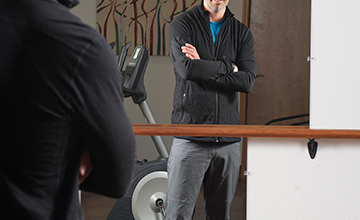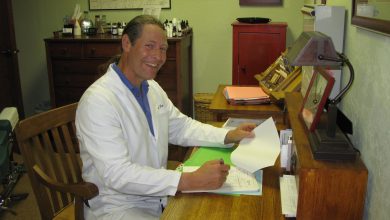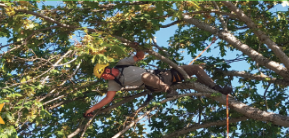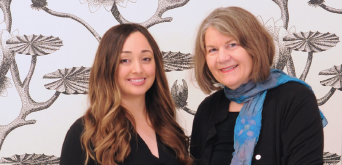Grace Skincare Studio – Oncology Esthetics – Taking Care To A New Level
Unfortunately, everyone in our community has been touched by cancer in one way or another.
In 2016, an estimated 1,685,210 new cases of cancer will be diagnosed in the United States.
The goal of this interview today is to introduce the community to the services of Hollie M. Swart, an esthetician specializing in oncology and health-compromised skincare. I ask you today to please help to share this interview with family, friends, neighbors and physicians who can help support Hollie’s work, who who can in turn support our community members who need it the very most.
“To educate is to give power.
To give power is to gain control.
To gain control is to reduce fear.
To reduce fear is to give hope.
Hope is life’s key to survival.”
Virginia Long, Cancer Survivor
Hi Hollie, thanks so much for doing this interview with us today. Please introduce us to your practice and tell us about your focus as an oncology-centric esthetician.
Thank you so much for this opportunity! I am an oncology-trained esthetician through the Institute of Integrative Oncology, which has blessed and forever changed my life. In 2013, I went through a life-altering medical crisis. Through that experience I realized that traditional health care had taken me as far as it could. I was in a dark place of desperation, and knew I needed more help. So, I dove down the rabbit hole of Integrated Healthcare and never looked back. These women that I found changed the course of my life forever. My tribe. These practitioners I see to this day, as a form of ongoing self-care, almost 4 years later. It all began one day I was at my women’s health physical therapist’s office receiving one of my weekly treatments, simultaneously meditating on what I wanted for my future, and it came to me I needed to go into esthetics, but in what capacity? I went home and meditated longer, I needed clarity. I knew I wanted to go to esthetician school but even deeper I wanted to help women going through their own medical crisis. That is when I decided I was going to specialize in oncology & health-compromised skin care. If I could give back just a portion of what my tribe went out of their way to give me, I would be forever grateful.
Hollie, please tell us more about your professional training.
Yes, I received my esthetician certification through our very own Imani Institute of Cosmetology here in Ashland! Such a gem right here in our own backyard! I received my specialized training in Oncology Esthetics through the Institute of Integrative Oncology (Greet the Day). In order for an educator or organization to offer a certification for an oncology esthetics (or massage) certification program, it has to include extensive coursework, practical experience under supervision, and a series of examinations. Upon successful completion, a “Certificate of Achievement in Oncology Esthetics” is awarded to attest that the esthetician/spa professional has been fully and carefully evaluated by instructors and administrators. This training will be lifelong as I continue to delve deeper into oncology skincare, so that I can offer my clients the safest holistic skin care that I can.
What brought you to realize that you wanted to focus in oncology skincare?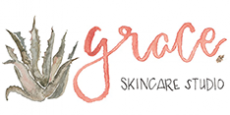
It all really comes back to 2013, when I went through my own health crisis. At the age of 30, I received a full hysterectomy due to endometriosis, adenomyosis and a benign mass in my uterus. At the time of my surgery my specialist also performed a cystoscopy in my bladder and I then was diagnosed with the autoimmune disease, interstitial cystitis.
After my hysterectomy, I still needed to receive two bladder instillations weekly for six weeks, then one instillation a week for a month, tapering down to one every other week, and then finally once a month for six months. These treatments were excruciatingly painful. I would go into this cold sterile room, with blindingly bright fluorescent lights and have a bladder instillation performed with a catheter. I would focus in on this painting of the sea and hold my husband’s hand and pray maybe this one wouldn’t hurt as badly as it had in the past but they always did. As my journey unfolded and I sought the help from various practitioners (my tribe) and I quickly began to realize what it was I wanted to accomplish within my skincare practice. I wanted it to be a place of true restoration of mind, body and soul. I wanted my clients to feel nurtured, for the love of what I do to be palpable in the room. I know most of their days they are in the same cold, sterile rooms I was in, all the while making serious, life-altering decisions. When they come into Grace, I want them to be able to be free, let go, enjoy and rest assured knowing I have the proper training and heart to help them through this experience.
Hollie, part of the reason in doing this interview today is to bring more attention to the issue and to help make people more aware of the available options.
The effects of cancer on your skin can leave it feeling dry, flaking and extremely sensitive. Products or treatments that you may have used without incident in the past may now react adversely on your skin. It is important that women have a source for good skin care during a traumatic and trying time. I can help them through some of the stress by minimizing the ravaging effects that chemo and radiation have on their skin through expert treatments in a tranquil and soothing environment. In Europe, this care is mainstream. Physicians are educated on the benefits a trained esthetician can give to a client undergoing treatment or in recent recovery. This idea is just gaining momentum in the US, mostly in larger metropolitan cities and at university hospitals in Southern California. I feel very strongly our beautiful community deserves this form of palliative care also.
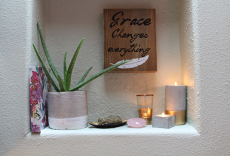 What are some of the considerations you have been trained to take when working with individuals living with compromised health issues?
What are some of the considerations you have been trained to take when working with individuals living with compromised health issues?
You must have specialized training to acquire the necessary knowledge and skills to work with someone who has cancer. You will need to know the following: the effects of cancer on the body and the mind, the side effects of surgery, chemotherapy, hormone therapy, radiation therapy and modifications for treatment based on client needs. Modifications that include but are not limited to position on the bed, when to prop, and when to adjust pressure, direction and speed. Safe product and equipment choices and how to care for typical skin conditions. When to or not to treat, and understanding neutropenia, anemia, thrombocytopenia, neuropathy, metastasis, dermal toxicity, mastectomies, existing or risk of lymphedema, existing or risk of blood clots, compromised organ function, medication and anti-cancer drug agents/side-effects and fragile or unstable tissues, scar treatments, implanted port, palliative and end-of-life care.
What are the risks of working with a conventional practitioner when living with compromised health issues?
An oncology skincare treatment is a customized client service designed to meet the unique and changing needs of someone currently in treatment or in recent recovery. The goals of the treatment are simple: soothe sensitivity, replenish hydration, strengthen barrier function and protect.
A skin care therapist that has not been oncology-trained simply isn’t able to provide the safest level of service to a client who is in treatment or in recent recovery. Recovery is expected to be as long as treatment, for example, if the client received radiation or chemotherapy for nine months their recovery will be nine months. It is extremely important to know how to handle various issues while conducting an oncology skin care treatment, such as the placement of ports, central lines, and lymph nodes in the axillary. The therapist must also be knowledgeable on the proper direction of movement and the adequate amount of pressure to use. Many additional challenges can apply, depending on the medications the client is taking and how they are responding to treatment. A service performed by an educated oncology-trained esthetician with a comprehensive understanding of the disease is reassuring to clients. They can rest assured that they are in capable hands, which I hope gives them a strong sense of relief and comfort, and enhances their spirits through the healing touch I provide.
Hollie, please tell about some of the relationships you have been able to form with your work.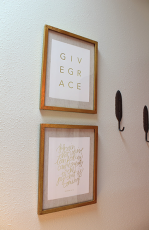 My work is incredibly important to me. I have learned through my journey that just like being a wife and a mother, it is my soul’s journey to help people who need it the most. Seeing a client with a beaming, blissful smile on their face after a facial is everything. To hear later that their skin feels so much smoother, supple and vibrant makes me feel so grateful that I am able to offer this type of palliative care to my clients. I have formed so many great relationships already in the community with health care providers that see the value in my work and that is so humbling for me. These practitioners are making huge strides to help our community members get the very best care that Southern Oregon can provide, where the patient comes first. You can feel the difference with a practitioner who is holding space for their patients. It is a truly inspiring thing to watch.
My work is incredibly important to me. I have learned through my journey that just like being a wife and a mother, it is my soul’s journey to help people who need it the most. Seeing a client with a beaming, blissful smile on their face after a facial is everything. To hear later that their skin feels so much smoother, supple and vibrant makes me feel so grateful that I am able to offer this type of palliative care to my clients. I have formed so many great relationships already in the community with health care providers that see the value in my work and that is so humbling for me. These practitioners are making huge strides to help our community members get the very best care that Southern Oregon can provide, where the patient comes first. You can feel the difference with a practitioner who is holding space for their patients. It is a truly inspiring thing to watch.
Please share some recent testimonials with us.
I recently received a facial from Hollie Swart and I must say it completely changed my skin tone and the way I am able to apply my makeup. Almost a week later my face started to peel off all the dead skin and is softer than ever. – Karman, A.
It was a sincere pleasure to work with Hollie, she is warm, welcoming, professional and knowledgeable, her studio space is a true oasis.
I was very happy with the services I received and will definitely be coming back – J.R.
I REALLY appreciated the regular check-ins, and I LOVED the head and jaw massage. When Hollie worked on my hands and feet I could feel it all over my body. I felt fantastic the whole rest of the day. It’s been a long time since I felt that way. – Porter, B.
I was very apprehensive. I almost cancelled, the day before and on the morning of. I came home and told my husband all about it and can’t wait to come again. As much as I enjoyed it on the day I know I’ll enjoy it even more next time knowing what I can expect. It was an excellent experience, I really appreciated how Hollie invited me to speak up at any time and also checked in with me regularly. The facial felt so good, and to me this is God’s blessing. I thank you from the bottom of my heart. – York, K.
Helping clients feel safe is a huge part of your process.
Conventional physicians usually advise their patients not to undergo esthetics treatments due to the lack of specialized education and training in the field. Weak preparation, including failure to provide clear and concise information regarding safe spa treatments, the questions the patients or advocates should be asking their skin care therapist, and what to expect from the treatment, continues to be one of the biggest obstacles physicians have to face with this matter.
An oncology-trained esthetician is able to provide therapeutic massage and skin care treatment for oncology clients by working safely within a framework of clinical considerations. Primary considerations are blood cell count, bone metastasis, blood clots, vital organ involvement, integumentary system (skin, hair, and nails), compromised lymphatics, and medical devices.
At hospitals, such as the University of California, Irvine, Cancer Center, UCI Newport Infusion Center, Costa Mesa, and USC Norris Cancer Day Hospital, Los Angeles, there is a variety of palliative care offered such as skin care, massage, reiki, and yoga. The Touch Research Institute at the University of Miami School of Medicine says it has carried out more than 100 studies into touch and found evidence significant effects, including growth in premature babies, reduced pain, decreased autoimmune disease symptoms, lowered glucose levels in children with diabetes, and improved immune systems in people with cancer.
Furthermore, safe touch releases oxytocin in our brain and bloodstream through our dopamine system. It’s not just a feel-good chemical, oxytocin helps us form social bonds while our stress levels are low. It reduces stress levels which can be measured by reduced blood pressure and improved mood. Oxytocin even increases pain tolerance and speeds up how wounds heal. My greatest hope when a client leaves my treatment room is this, that they might notice the way the clouds hang over the mountains or the little bird chirping in the trees or the way the sun is reflecting off the leaves and feel a sense of peace and joy that can help them conquer that next treatment or procedure with a renewed sense of self.
Clients often times bring an advocate with them that you find helpful and available to work with.
I welcome advocacy in my treatment room. When I went through my medical journey my husband was at every appointment I had. I truly didn’t feel safe unless he was by my side. I had the trust and confidence in him to make the right decisions for me.
I just didn’t have the energy or the wherewithal to do it on my own. My husband knew more about what was happening to me than I did at one point because I just couldn’t retain anything that was told to me. This role was especially important when it came to filling out intake forms and discussions on my treatment plan. So for a client to bring in their advocate is awesome! I can easily navigate these waters and have these important conversations about their primary clinical considerations and contraindications with their advocate so that my client can just come in and take a deep breath and relax!
Can you please tell us more about the environment you create when working with your clients?
My treatment room is specifically set up for the well-being of my clients. When you enter the treatment room you are welcomed with glowing candles, beautiful music and an amazing treatment bed adorned with luxurious bedding to curl up in. My treatment bed is ADA-rated. It is completely hydraulic, Tempur-pedic, and can be heated to the clients desired temperature. The treatment table goes down to 13 inches from the ground, making it easier to get in and out of, and is 36 inches wide to accommodate any medical devices the client may have at the time. The backrest is electronic as well as the leg portion. I also have lots of props and bolsters to help with positioning and comfort.
Once you enter the treatment room, you immediately know you’re in a space of healing.
Your choice of skincare products is something you have taken a lot of pride in selecting.
Yes! I have spent many months researching what product line would best be suited for my oncology clients. I have discovered that just because the product says natural or organic, they are not always better or safer than synthetic products and the terms “unscented,” “dermatologist– tested,” “all-natural,” or “organic” do not guarantee the products are anymore safe or effective for oncology skin care. For those undergoing cancer treatment or those with health-compromised skin, I use a product line called Osmosis Skin Care. This line is made specifically to be oncology-friendly. You can be confident that this product line is the best for sensitive and health-compromised skin, enhancing beauty in the safest way possible. For my traditional skin care my goal is to provide pure, effective products that benefit even the most sensitive complexions so that you can feel beautiful in your skin. Province Apothecary began with the mission to produce the best skin care products using only high-quality, certified organic, biodynamic and wildcrafted ingredients sourced from each of the Canadian provinces. Expertly hand-formulated, blended by hand in small batches, ensuring the highest quality skin care for you, blending the wilds of Canada into nourishing and balancing skin care.
I am honored to be able to have two such supporting skin care lines that I can trust and truly believe can help heal and transform my clients skin.
Please talk about working with compromised lymph nodes.
Yes, having compromised lymph nodes is something that requires primary clinical considerations lifelong. Lymphedema can be caused if primary clinical considerations aren’t taken with a client who has had either axillary lymph nodes removed or inguinal lymph nodes removed.
Lymphedema can occur in the arm after lymph nodes are removed in the axilla are removed, or in the leg if inguinal nodes are removed. In the past, it was thought that if your client had only ONE of the following cancer treatments, their risk of developing lymphedema was 5-10 %:
• Lymph nodes removed (even one)
• Radiation to primary node areas
• Surgery affecting primary node group
Today, the generally-accepted lifetime risk ratio for developing lymphedema is considered 4% per compromised node. The risk of developing lymphedema approaches 25%-40% for clients who have had any combination of the above listed treatments. Lymphedema can develop immediately postoperatively, or weeks, months, or even many years after completion of treatment. When providing a skin care service traditionally, estheticians are not trained in lymphatic massage. When an untrained esthetician provides traditional head, neck, and shoulder massage they can unknowingly move lymph into axillary nodes that may have had the lymph nodes removed or compromised by radiation or surgery. This lymph will pool there due to the inability of the lymph nodes to perform their primary function (moving lymph) which in turn can leave the client with flu-like symptoms.
As an oncology-trained esthetician I have been trained on the proper precautions to take in order for the client to have the best, and most importantly safest, skin care treatment.
Your practice is not 100% oncology-based.
That is correct! I offer traditional holistically-centered skin care and acne skin care.
Holistic skin care is a method to accelerating the self-healing process. I combine the necessary
formal training, years of experience, and an intuitive approach to the body that allows me to explore the holistic needs of each individual client. Whether you need to relieve stress from a hectic schedule or recover from demanding anti-cancer therapies, I can help change the way you look & feel. I truly feel so honored and blessed to be able to have an offering for each client. To be able to have a place to rest and restore is vital in this fast-paced life we all live.
I also offer sugaring, which is such an amazing and safe form of hair removal from Egypt, dating back to somewhere around 1900 BC. The sugar paste only adheres to dead skin cells unlike HOT wax! Which by the way, sugar paste is the same temperature as your body, therefore there is no way of getting burned! You are also at a lower risk of getting those pesky and often painful ingrown hairs, because with sugaring we “flick” with the direction of the hair growth instead of against like waxing.
It has been my goal to have a variety of services that can suit anyone’s needs or desires. All of my services have my client’s best interests in mind, safe, organic, luxurious and healing. I hope that my clients can feel and see the difference with each service I provide for them.
How are you working with costs associated with treatment?
Currently, I am in the research process of how I can accept insurance for the benefit of my oncology clients. I feel deeply that this is a needed option. Cancer care is expensive and I certainly don’t want to add to the already-taxed budget of most families.
To help alleviate this burden I offer a 25% discount on my oncology-friendly facial to anyone currently in cancer treatment or in recent recovery.
Are there any last thoughts or comments you would like to share with our readers?
Oncology Esthetics is the field within the broad scope of the esthetics industry defined as the specialty that provides skin care services to cancer patients while they are undergoing treatment therapies or in recovery. It includes palliative care, relieving cancer symptoms without affecting a cure, which lightens the pain, and other distressing symptoms of anti-cancer therapies, and integrates the psychological and spiritual aspects of the treatment. The idea of treating cancer patients with skincare and spa therapies developed due to the public’s influence and demand, an increased focus on complementary administrative medicine (CAM), and most importantly at the request of the cancer patients themselves. When you set out to look for an oncology-trained provider make sure the skin care therapists have had the formal education and training to be able to safely provide treatments to a person undergoing cancer treatment.
Well said. How can we as a community help you?
I ask that you open your heart and your mind and share this article with your loved one that may be in cancer treatment or recent recovery. This type of palliative care is not something typically seen in Southern Oregon, but incredibly imperative to one’s skin healing. Palliative care is a multidisciplinary approach to specialized medical care for people with serious illnesses. It focuses on providing people with relief from the symptoms, pain, physical stress, and mental stress of a serious illness—whatever the diagnosis. My lifelong goal is to improve quality of life for both my clients and their family.
What are your hours?
10am – 7:30pm – By Appointment Only
How can we go about setting up an appointment or meeting with you?
I would love to hear from you! You can reach me at the phone number and website listed below with any questions about services, treatments, product or booking. Additionally, feel free to book a complimentary skin care consultation online and submit questions in your booking notes as well. I so look forward to hearing from you and meeting you soon!
Learn More:
Grace Skincare Studio LLC
325 A St, Suite 1, Ashland (nestled in with Ashland Holistic Health)
http://graceskincarestudio.com/
(541) 797-8267

